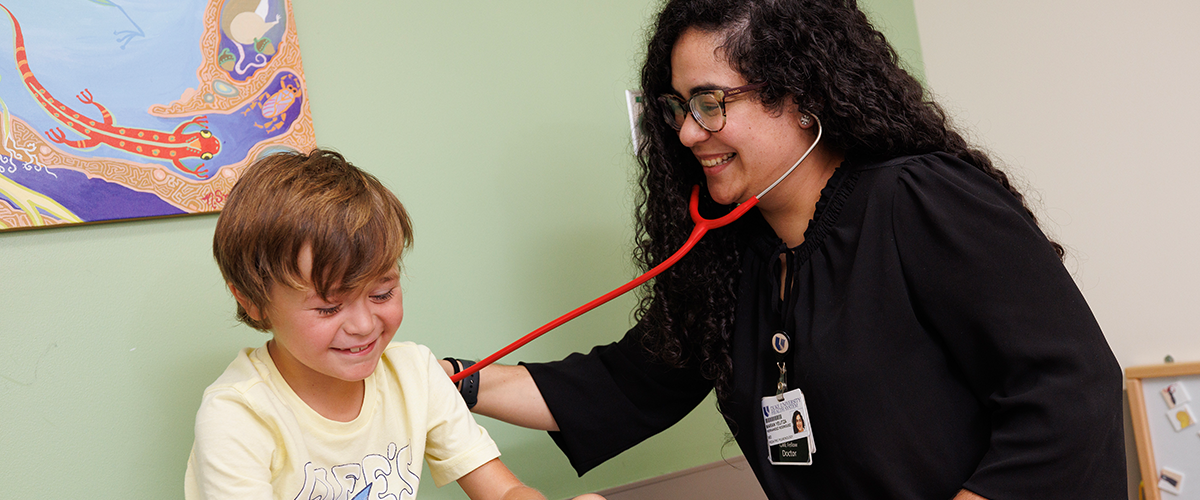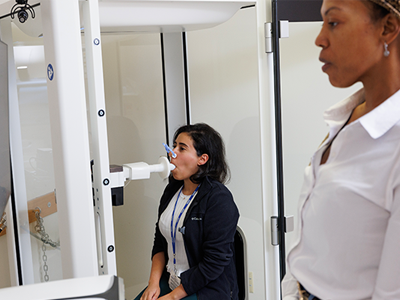
Fellows will gain expertise in caring for children with diverse respiratory conditions. Conditions include asthma and pediatric sleep disorders as well as more rare conditions such as those related to transplantation, immunodeficiency, and neuromuscular weaknesses.
While on the inpatient service, the fellow directs the day-to-day management of patients admitted to the hospital, answers inpatient consults, and performs bronchoscopies under the supervision of Duke pediatric pulmonary faculty. In the outpatient setting, fellows will participate in general and subspecialty clinics were they will see new and return patients. Fellows will be responsible for interpreting pulmonary function testing.

Fellows will help tailor their education and gain skills in the practice of pediatric pulmonary medicine. They will:
- Participate in clinical leadership and quality improvement;
- Learn to interpret pediatric pulmonary function tests, polysomnography studies, and sweat chloride tests;
- Learn to interpret pediatric airway imagining (radiographs, chest CT);
- Engage in medical education which will include teaching pulmonary physiology and respiratory care to trainees and allied health professionals;
- Perform flexible bronchoscopy, bronchoalveolar lavage and other airway procedures;
- Learn to interpret bronchial provocation testing (methacholine challenges);
- Understand the principles of cardio-pulmonary exercise testing;
- Learn to evaluate and manage ventilator-dependent children;
- Learn to administer and monitor non-invasive ventilation;
- Learn research skills such as critical reading, research design, statistical analysis, data reduction, scientific writing, and presentation.